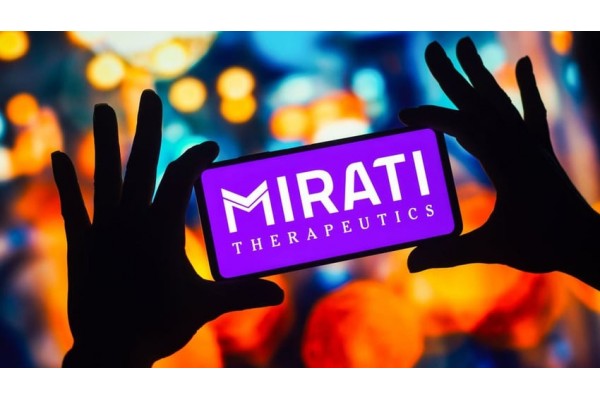Mirati’s Flagship KRAS Inhibitor Krazati Gets Rebuffed in Europe
July 25, 2023
Source: drugdu
 359
359

An approval from the U.S. FDA doesn’t guarantee a green light overseas—a lesson Mirati Therapeutics has learned the hard way after European regulators rebuffed the company’s flagship KRAS inhibitor Krazati. Friday, Mirati revealed that the European Medicines Agency’s Committee for Medicinal Products for Human Use (CHMP) had spurned the company’s conditional marketing authorization application for Krazati, also known as adagrasib, to treat patients with KRAS G12C-mutated advanced non-small cell lung cancer (NSCLC). In a release, Mirati said it “disagrees with the opinion” and intends to file for a formal re-examination.
Once considered an undruggable target, KRAS now has two FDA-approved therapies competing in a potential blockbuster cancer market in the United States. After Amgen won an accelerated nod for its rival KRAS inhibitor Lumakras in May 2021, Mirati entered the fray with Krazati—the biotech’s first commercial product—in December.
While Amgen’s drug has suffered a sequential sales decline in the U.S., Mirati’s med recently surprised analysts in its first full quarter on the market, generating $6.3 million over the first three months of 2023.
As for the European Union rejection, Mirati said CHMP believes Krazati has a positive risk-benefit profile but doesn’t fulfill “certain requirements” for a conditional marketing nod. Alluding to its Amgen rival, Mirati said it “believes Krazati addresses the Conditional Marketing Authorisation requirements despite there being a currently conditionally approved KRAS G12C inhibitor and that Krazati possesses a differentiated clinical profile.”
The biotech singled out differentiating factors such as Krazati’s safety profile, its potential central nervous system activity and its compatibility with other cancer-fighting agents.
"We remain steadfast in our belief in the potential of adagrasib to provide hope for patients in the European Union," David Meek, chief executive officer of Mirati, said in a statement.
Mirati’s EU application leverages data from the phase 2 registration-enabling cohort of the Krystal-1 study. That trial examined Krazati at 600mg twice a day in 116 patients with previously-treated, KRAS G12C-mutated advanced NSCLC. In the study, the drug shrank tumors in 43% of patients.
Curiously, Mirati says it’s already furnishing certain European patients with Krazati on “individual requests from healthcare professionals.” Despite the EMA slap-down, the company “intends to continue supplying Krazati under early access in EU member states.”
The decision won’t take a toll on any of Mirati's clinical trials, the company said. Enrollment in the company’s confirmatory phase 3 trial for adagrasib is “progressing as expected.” The biotech expects to deliver progression-free survival and interim overall survival results sometime in the first half of 2024.
Source: prNewsWire.com
By editorRead more on
- The first subject has been dosed in the Phase I clinical trial of Yuandong Bio’s EP-0210 monoclonal antibody injection. February 10, 2026
- Clinical trial of recombinant herpes zoster ZFA01 adjuvant vaccine (CHO cells) approved February 10, 2026
- Heyu Pharmaceuticals’ FGFR4 inhibitor ipagoglottinib has received Fast Track designation from the FDA for the treatment of advanced HCC patients with FGF19 overexpression who have been treated with ICIs and mTKIs. February 10, 2026
- Sanofi’s “Rilzabrutinib” has been recognized as a Breakthrough Therapy in the United States and an Orphan Drug in Japan, and has applied for marketing approval in China. February 10, 2026
- Domestically developed blockbuster ADC approved for new indication February 10, 2026
your submission has already been received.
OK
Subscribe
Please enter a valid Email address!
Submit
The most relevant industry news & insight will be sent to you every two weeks.



